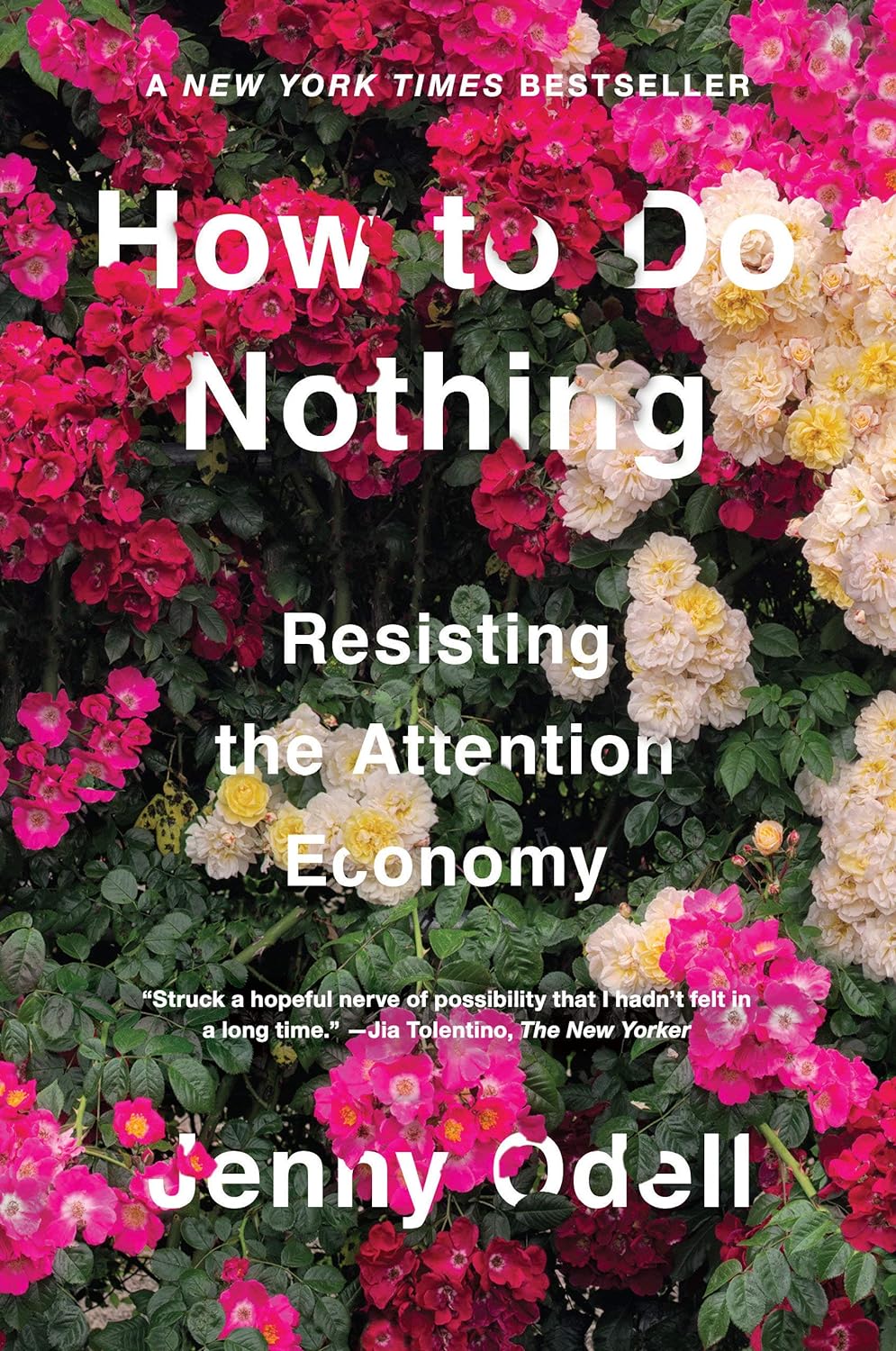Nothing is harder to do than nothing. In a world where our value is determined by our productivity, many of us find our every last minute captured, optimized, or appropriated as a financial resource but the technologies we use daily. we submit our free time to numerical evaluation, interact with algorithmic versions of each other, and build and maintain personal brands.1
I know I resonate with the feeling above. I sit down and have nothing in my hands. I’m watching nothing, reading nothing, just sitting in a moment and I wonder if it’s really what I should be doing. In How To Do Nothing, Jenny Odell, is going to help us move past that feeling that we should be doing something and into a feeling that it’s okay to sit and do nothing.
To her doing nothing is an act of political resistance to the attention economy.2
She breaks her book up into two sections3. The first half of the book is about disengaging from the attention economy. The second half is about engaging with something else that has meaning to us.
To deny the attention economy means that we choose to direct our attention elsewhere. We resist paying attention to the things it deems valuable, ignoring it’s provocations, and instead focus on things that bring value to our lives[^Page 81]. When we take this step, we need to be careful that our directed attention isn’t simply directed to something that is of equally poor value to our lives4.
While I impose the word value on Odell’s writing, I don’t mean economic value. She is very careful to make sure the reader understands she is not talking about economic value. She sees high value to your being in sitting in a field repeatedly over seasons so that you can understand the plants in it and how it changes over seasons. There is no economic value here, but there is huge value in being rooted to the places that are around you.
Odell devotes three chapters to helping us think about engaging with something of meaning when we disengage from the attention economy. First, she says it’s fine to put laws around addictive tech, but don’t abdicate the responsibility you have to take charge of your attention5.
Second, when you feel annoyed about some perceived slight by someone else and want to vent about it, remember that you may not know the whole story. Maybe that person who cut you off was rushing to the hospital to see a loved one before they died. Maybe they really did need to get somewhere before you did6. You need to work against the tendency to make your story the most important story.
Third, angry social media storms are like a flood eroding our empathy7. You may not know the whole story, and they’re good for social media companies because we are engaged with their platforms where they can advertise to us. What if we stopped complaining into the void and had focused direct conversations with those that our words may actually change8.
Should You Read How To Do Nothing by Jenny Odell?
Where I found a book like Digital Minimalism or Deep Work practical and full of solid steps I could take to regain my focus and attention, How To Do Nothing was not the same. Odell is an artist, and there is much more language that tends towards that end of emotion. I found this book strong on feeling, and light on practical tips you can use to change where you focus your attention.
I’d recommend either of those two books as better reads than this one. But if you tend towards the artist mentality, then maybe this one will speak to you on a level that I wasn’t engaged on.
Purchase How to Do Nothing:
